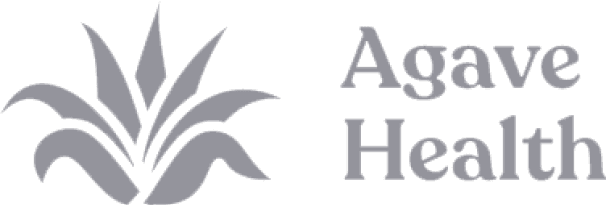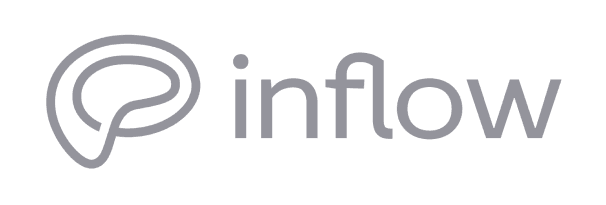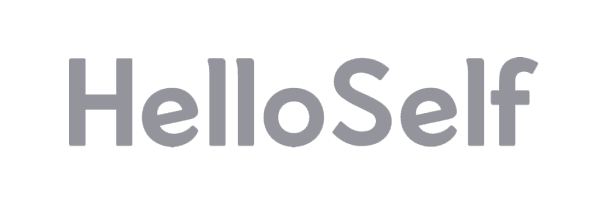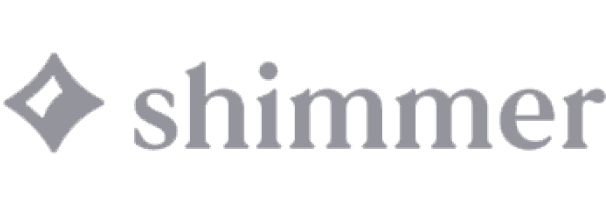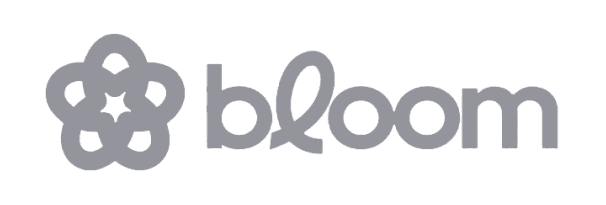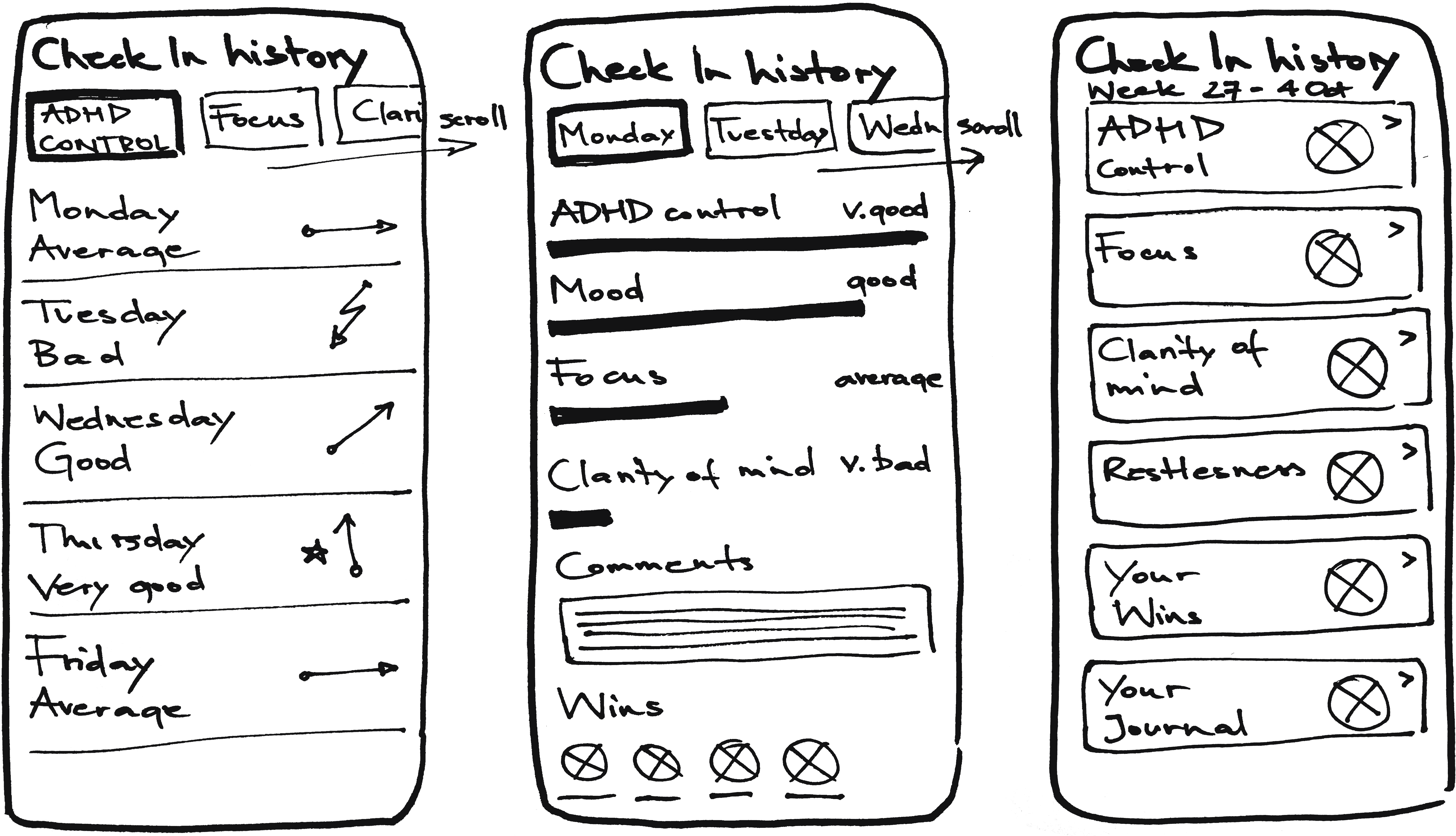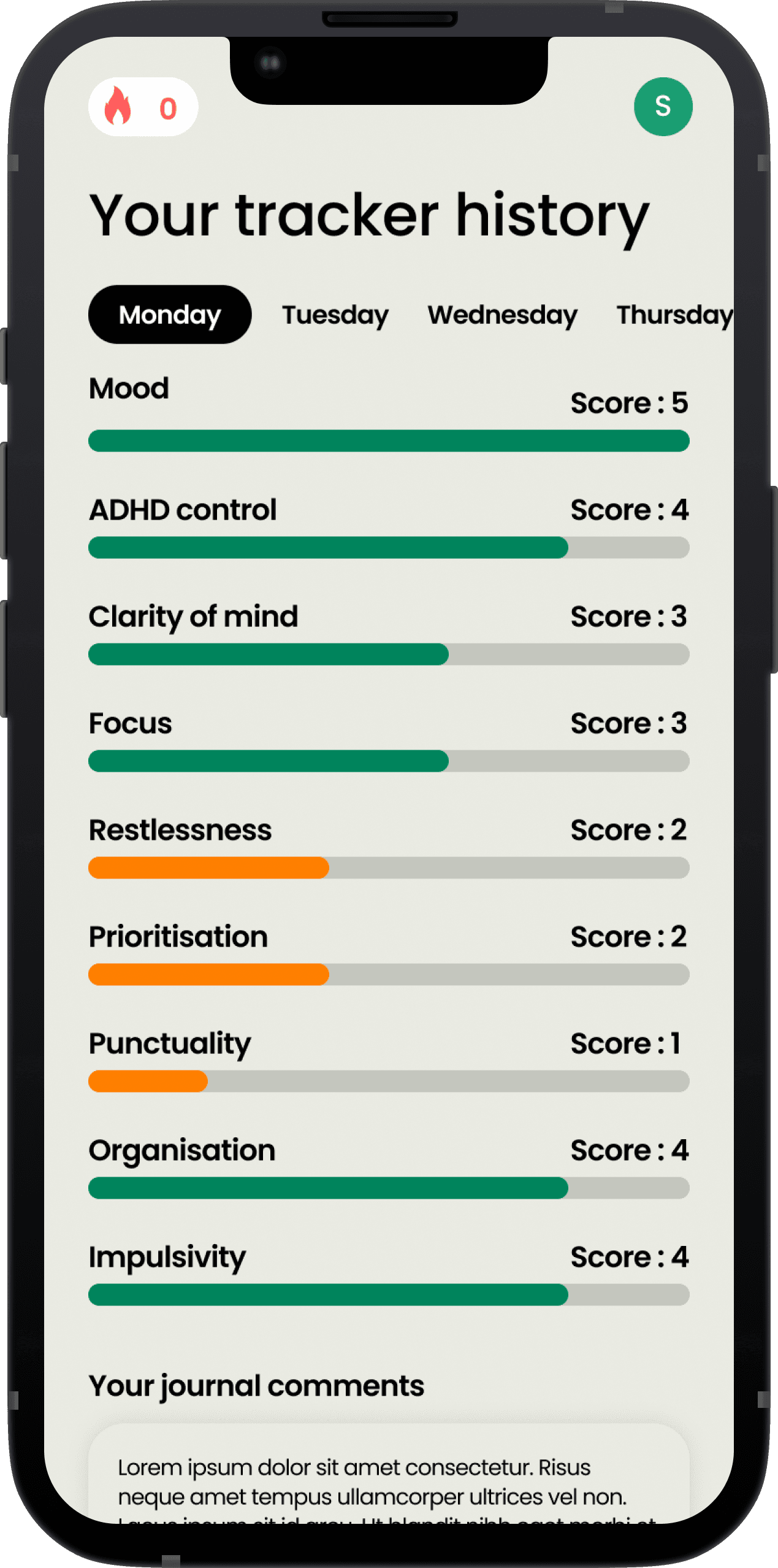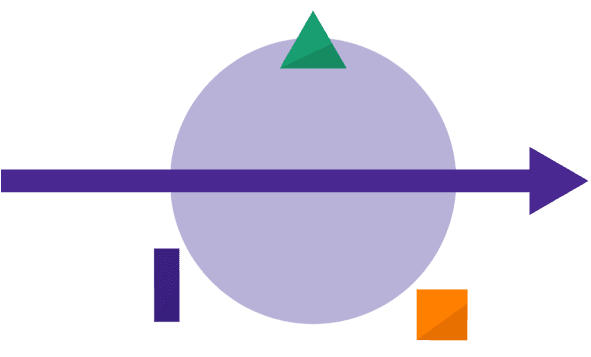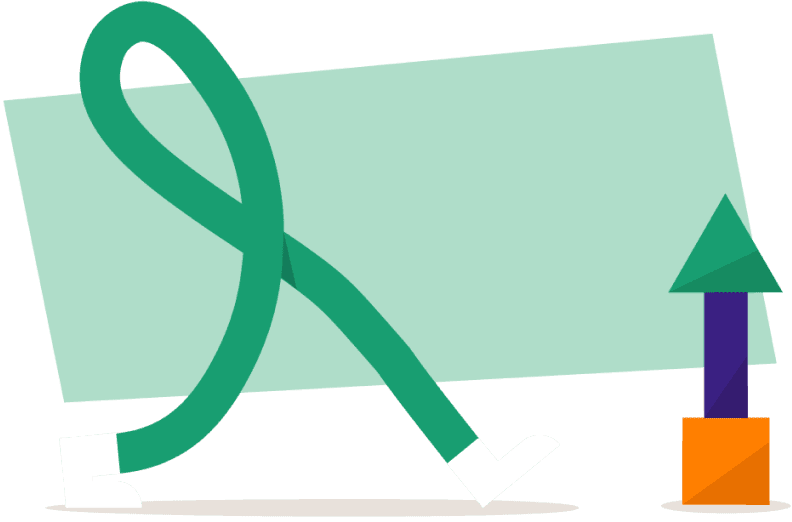gaps and opportunities
in ADHD therapy processes
brand

summary
As the Founding Designer at a pre-seed mental health startup, I led product discovery, uncovered key user needs, and turned insights into tested, shipped solutions. This resulted in an increase in therapy session bookings and growth in user engagement.
role
Research
Strategy
UX/UI
time
2 months
tools
Figma
Miro
Notion
Asana
setting the stage
Cog is a mobile app designed to support people with ADHD. A significant part of its offering is online therapy delivered through Cog Clinic. My goal was to understand ADHD therapy from multiple perspectives to identify problems and uncover focused design opportunities.
MY ROLE




interviews
Holistic Insights
Through 360° Interviews with ...



My goal was to gain a deeper understanding of the ADHD therapy landscape so I could address our users' needs better.
Competitive analysis
Space for opportunity
in the therapy aiding tools
I identified a variety of solutions for ADHD support, generally divided into two categories: self-help apps and therapy platforms.
Self-help apps are typically designed to be engaging and fun, offering tools like mood check-ins, educational videos, and AI chatbots.
Therapy platforms generally offer access to coaches through monthly subscriptions but lack tools that directly support the therapy process. Only a few, including our key competitors Inflow and Agave Health, included features like emotion or symptom check-ins.
This gap in therapy-support tools indicated a unique opportunity to develop features that actively support the therapeutic journey.
Key research findings
Gaps in connection,
LACK OF structure and resources

INSIGHT #01
Defining needs and goals is crucial yet challenging
Effective therapy relies on clients understanding their emotions and goals, but many struggle to express them, often giving vague responses like 'I want to complete tasks more easily' because their needs aren’t fully clear.
INSIGHT #02
session structure leads to unfocused therapy
Sessions often start with ‘How’s your week been?’, often leading clients to recall recent events instead of key issues. This impacts the focus and outcomes of therapy.
INSIGHT #03
clients' motivation dips Without Visible Progress
Clients are driven by visible progress, but therapists lack structured tools to track it. Without consistent tracking, clients struggle to see improvements, leading to a lack of motivation.
INSIGHT #04
therapists are drowning in administrative work
Therapists handle extensive admin tasks including session summaries and risk assessments that can take 15–40 minutes per session, often unpaid. This extra workload contributes to burnout.
Session Booking Drop-off
Beyond the core insights, I identified a high-impact friction: users valued individual and flexible session booking but often forgot to rebook, even when they wanted to continue. This presented a clear opportunity for a quick, valuable fix.
Katherine Bell
“I need therapy with continuity, clear progress, and actionable insights readily available.”
SCENARIO
Katherine is successful at work but struggles to balance it with her personal life and mental health, often leading to burnout. She wants to understand and manage her ADHD to feel less exhausted and anxious. Previous therapy felt chaotic and unimpactful, leaving her unmotivated and uncertain about any progress.
EXPECTATIONS
She wants to manage her ADHD effectively and work with a therapist she can build rapport with.
She seeks structured therapy with clear progress tracking to stay motivated.
She hopes her therapist will help identify key focus areas, reducing the burden of recall.
STRATEGY
TRANSFORMING Therapy
with AI and Data-Driven Solutions
The issues I uncovered revealed many opportunities for improvement. I began to imagine, what could a big picture product vision for Cog clinic look like?
Cog allows users to track symptoms, emotions, wins and add daily journal entries for context.
Why not use these tools to give users a clear, insightful view of their progress and overall well-being?

This would also give therapists a better understanding of their patient’s health and areas to focus on.
With structured data available before sessions, patients wouldn’t have to rely on memory, and seeing their progress could be a huge motivation boost.
Additionally, a centralised hub would keep therapy organised; session summaries, homework, communication, reminders, and an archive all in one place, so nothing ever gets lost.
Design idea
Automating some of the admin work could further reduce clinician burnout. For example, after each session, AI could draft a session summary and risk assessment based on the user’s data, allowing therapists to simply review it.
Design idea
methodology
Inviting Engineers
to Discussions Early On
With this big vision in place, I focused on prioritising ideas. Transforming check in entries (symptoms, emotions, wins, and daily journals) into actionable insights would address key issues identified in the research.
problem #01
Defining needs and goals is crucial yet challenging
Access to symptoms history would allow users to identify patterns enabling more targeted goals.
problem #02
session structure leads to unfocused therapy
Users could use their check in data to share relevant information each week, streamlining session focus.
problem #03
clients' motivation dips Without Visible Progress
Check in analytics could help users monitor symptoms and see their progress more clearly.
Early on, I worked with engineers to figure out what was realistic. Our backend setup in Firebase couldn’t support complex data aggregation without a major restructure, so we went with a lightweight weekly check-in history to launch fast and learn quickly.
exploratory sketches
chalenges
TESTING SHOWS
INFORMATION OVERLOAD
I started with a day-by-day layout and colour-coded progress bars to help users review their week and spot patterns. But, user testing showed that this layout was overwhelming.
Solution
User Journey Shaping Clarity
I focused my redesign on improving the user’s journey when reviewing their check in data. The goal was to help users move seamlessly from identifying key pain points to diving deeper into specific insights.
Katherine Bell





Weekly overview graph >
I designed a visual representation of the week to help users quickly understand key patterns. At a glance, users can spot the worst days and identify areas to explore further.
Two-Tab view >
To make navigation easier, I introduced a two-tab system that enables users to switch between a high-level weekly summary and detailed check-in data.
Symptom ranking >
To make the data more digestible, I grouped symptoms into categories: highs, lows, and neutrals. This provided clarity and allowed users to focus on what mattered most.
Journal and wins entries >
Journals add valuable context by capturing what was happening on specific days, while "wins" serve as positive reinforcement, helping users stay motivated.
In parallel, I also addressed session booking drop-off by introducing a batch booking feature, allowing users to schedule multiple therapy sessions at once.
Results
Small Changes,
Measurable Results
The history feature helped both users and therapists find value in reviewing past check-ins, contributing to a noticeable increase in DAU and average time spent.
Separately, after implementing batch session booking, we saw an increase in therapy bookings.
key takeaways
Design is Complex
and Context-Driven













